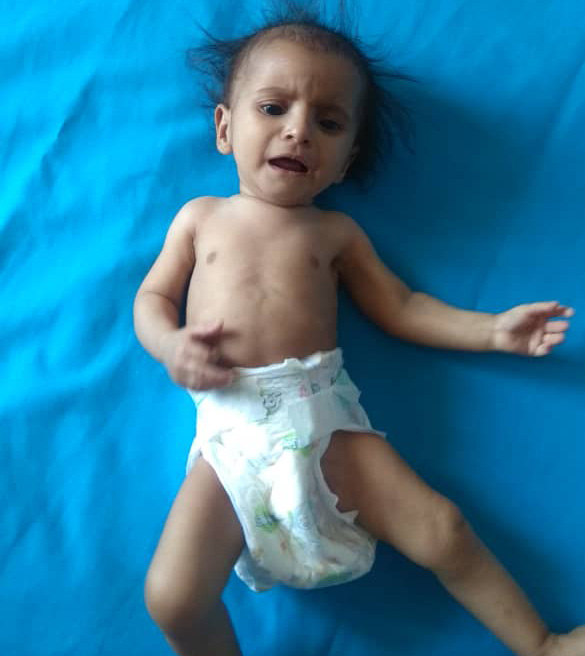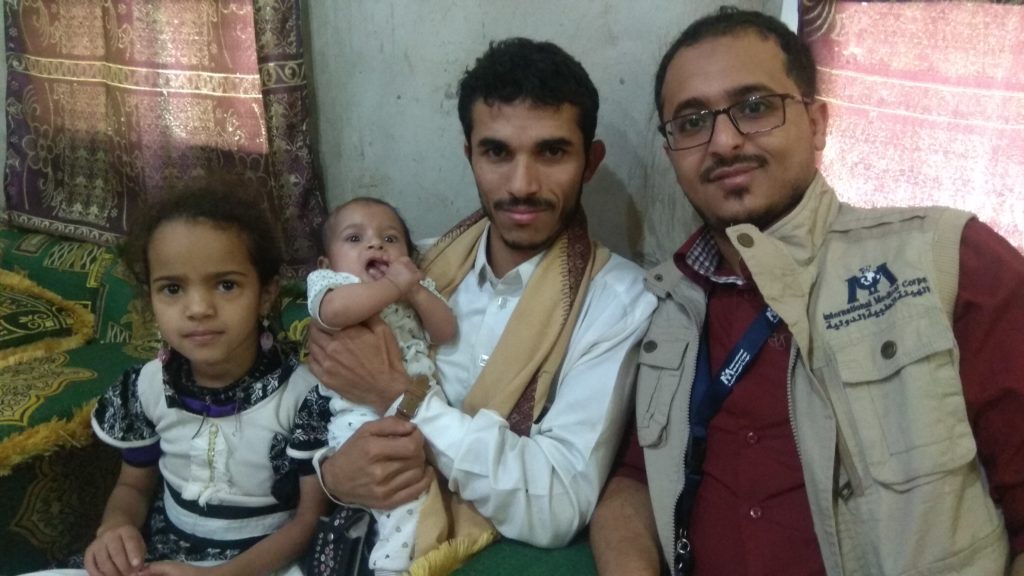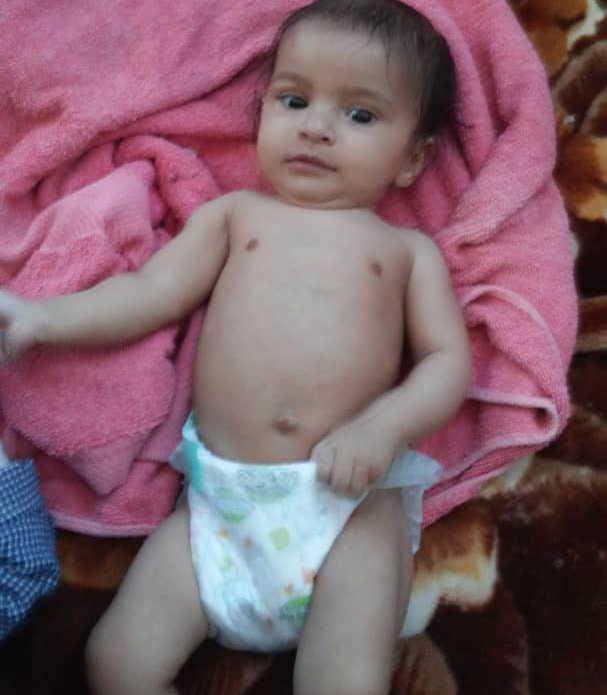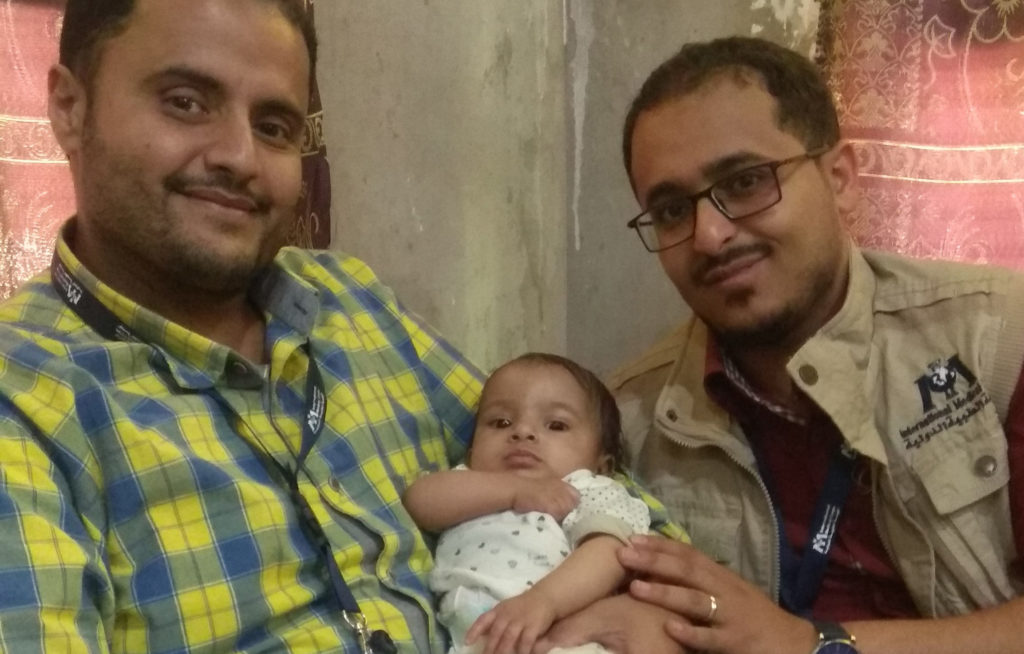It was a harrowing journey for the desperate parents, driven by one goal: finding help to save their youngest child—a tiny, severely malnourished 10-month old little boy named Haitham—before the flicker of life still inside him ebbed away.
Following a routine birth in the summer of 2018, Haitham had begun to lose weight last January. Treatments offered at health facilities close to home in the family’s native Marib Governorate in central Yemen had little impact. When the boy’s condition continued to deteriorate, his parents decided to set out for the country’s capital, Sanaa, where they had heard more specialized medical help might be available.

The decision was a gamble.
In the midst of a civil war now in its fourth year that has claimed thousands of lives—many of them innocent civilians—traveling even short distances can carry inherent risks. But Haitham’s father, a farmer named Mohsen Yahya Mohsen Al-Sakaf, believed they had no choice.
So to save their son, he and his wife packed a few belongings, gathered up their sick child and boarded a long-distance public bus near their home in Marib Governorate and traveled westward about 100 miles, along a notoriously dangerous road, to seek help in Sana’a.
Once there, Mohsen told us, they spent much of what little money the family had saved on treatments at private clinics that brought little improvement to their son’s condition.
Then came a stroke of luck.
A relative from Jinanah District, about 25 miles away, came to visit them in Sana’a. He told them he had seen children like Haitham, weak and emaciated, going into a hospital located in Jinanah. He had seen with his own eyes how some of those children had gotten better, and urged Mohsen and his wife to take Haitham there.
It was a hospital where International Medical Corps operates a center to treat acutely malnourished children.

Exhausted, desperate and out of options, the couple decided to travel the additional distance to the hospital in Jinanah, where they were quickly directed to the nutrition stabilization center.
An initial examination conducted by our medical staff indicated Haitham was suffering from severe acute malnutrition. He was running a high fever, was vomiting and showed no appetite. Two months shy of his first birthday, Haitham weighed an alarming 3.2 kilograms—just over 7 pounds, less than the average birth weight of a newborn in the United States. Our staff immediately began treating him with antibiotics to help attack the fever-causing infection, paracetamol to reduce fever and pain, and therapeutic food (essentially supplements rich in calories and nutrients).
After four days, Haitham began to show improvement. He had already added 200 grams—a bit more than the weight of a billiard ball—and had regained his appetite. After a week, he had picked up 400 grams—almost a pound. Just a day shy of two weeks after admission, Haitham had added more than two pounds, showed a good appetite and even sported a bright smile.
Following further observation, doctors agreed the infant could be transferred to an outpatient therapeutic feeding program administered by Jihanah Hospital at home. About the same time, Haitham’s relieved parents moved in with relatives who resided in the town. International Medical Corps provided them with a food allowance and transportation refunds.
Though he had arrived at our feeding center near death, in a matter of weeks Haitham had been pulled back from the brink.

Sadly, the tragedy of Yemen is that Haitham is far from alone in his plight. According to the United Nations, about 2 million children in Yemen under the age of 5 are acutely malnourished. Near-famine conditions have claimed 70,000 lives in the past three years—many of them children.
Each month, International Medical Corps treats nearly 3,800 children under 5 in our outpatient and inpatient nutrition programs, as well as 1,400 pregnant or nursing women who receive supplementary food. In addition, as part of our food assistance programs designed to improve household food consumption and dietary diversity, we provide monthly vouchers for about 2,000 food-insecure households with acutely malnourished children.
Our work in Yemen clearly makes a difference. But it is small in comparison to the enormity of the need we face.
“The tragedy is that the war and a lack of funds keep us from reaching so many more vulnerable children like baby Haitham,” says International Medical Corps Yemen Country Director Wasim Bahja. “We want to do so much more.”
